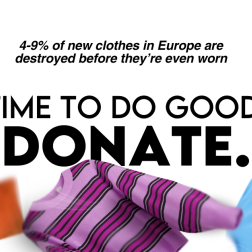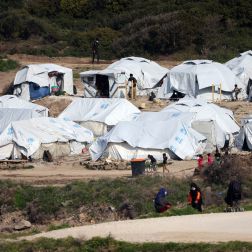- 3 mins read time
- Published: 19th February 2020
Oxfam among finalists for EU's €1m Blockchains for Social Good prize
At Oxfam Ireland, we have our eyes on the prize – the prize being a €1 million award for an EU competition entitled Blockchains for Social Good. Our innovative UnBlocked Cash Project was one of just 24 projects picked from 178 applications for the finals. Last week, Oxfam staff and our technology partners – Sempo and ConsenSys – delivered their pitch to a jury in Brussels, with the winners to be announced in the coming weeks.

The project uses a decentralised platform to improve the delivery of cash aid in emergencies, allowing us to make transfers in the form of vouchers to communities caught up in disasters. What’s different, however, is that these are blockchain-powered smart vouchers, making it easier and faster to get aid to the areas where it’s needed most.
This suite of blockchain-based, stable cryptocurrencies enables efficient cross-border transactions. It is also fixed to the price of the local currency to enable people to spend as they would in their local shops and markets.

The project has been piloted in the Pacific Island nation of Vanuatu, where users have shown not only is it a speedy and efficient way of transferring vouchers in an emergency, but also how the smart system updates in real time. This helps to reduce the number of resources needed to be devoted to transparency, accounting and monitoring.
Sandra Hart from Oxfam in Vanuatu described the island nation as being “the most, or the second most, disaster-prone country in the world. Because it’s a country of over 80 islands, disaster assistance takes ages to get to people. We did a nationwide study and the average time it took for people to receive assistance after a disaster was four weeks or more.”

But with the help of the blockchain pilot, Oxfam was able to deliver cheques to more than 13,000 volcano-affected households between December and March. “They… didn’t have to go through the process of lining up for a bag of rice,” said Sandra. “They were able to go shopping right away in their local markets.
“The key one for us, is that this will greatly reduce the timeframe, not just to deliver disaster assistance in Vanuatu, but to deliver vouchers… For the first time in Vanuatu, a community is familiar with a disaster relief system, familiar with a whole distribution system, meaning they are now well placed to design their own response and participate in that process. We really have community and tech-driven disaster assistance in the preparedness phase before something happens.”




